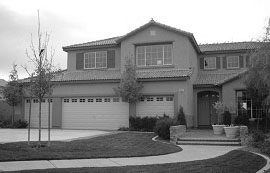Most of us live in houses with all the modern comforts that a technologically advanced society affords us. Our modern homes are sophisticated systems that cater to us in a way that could not have been imagined by our ancestors. In the past, we would have had to crack a window to get some air or put another log on the fire to heat a room. All this technology is fantastic, but it is also increasingly hard to understand for the layman. It can be hard to keep a home running at optimal efficiency when basic systems are not understood. How much do you know about the way your home works and if not what do you need to know?
The Different Categories of Knowledge:
Essentially, there are three different categories of knowledge that can be applied in every aspect of modern life. Here we will look at each of them and how they translate into knowledge about how your home actually works. The three categories of knowledge are: required, useful and advanced. Let’s take a closer look at each of them and what they pertain to in more practical ways.
Required Knowledge:
This is the basic level knowledge required about how your home actually works, you should know includes where your water comes from, where your wastewater goes, the location of your water main. You should also know your water is heated, how your home is heated and the type of fuel used, if your heater has an emergency off switch and where it is located, where your air conditioning is located, the location of your thermostat control and the location of your main electrical panel.
Useful Knowledge:
This level of familiarity goes a little deeper that your basic knowledge. It includes details such as the type of roof on your home, the materials used in plumbing pipes and fittings, the type of insulation used in your walls, roof and any attic spaces, the glazing in your windows and the type of mechanical ventilation system that may be fitted.
Advanced Knowledge:
Congratulations, if you’re learning this level of about how your home works you’re showing true commitment. An advance level of knowledge would include subjects and concepts, such as the probable location of air leaks, the effects of air movement on insulation, positive and negative pressure, the causes of condensation, energy retrofit measures, the pros and cons of different fuels and the importance of infiltration and exfiltration.
Knowledge in Application:
A working knowledge of even a few of the above areas will equip you with some solid information on how a modern home works. As you become more knowledgeable, you will identify areas in your home that can be made to work more efficiently. This knowledge will be invaluable if you decide to carry out a remodel or tackle a particular problem yourself. It will also allow you to better understand a skilled professional contractor and evaluate their advice correctly. If you’re in any doubt about a particular issue in your home, seek out advice from a well respected professional.
